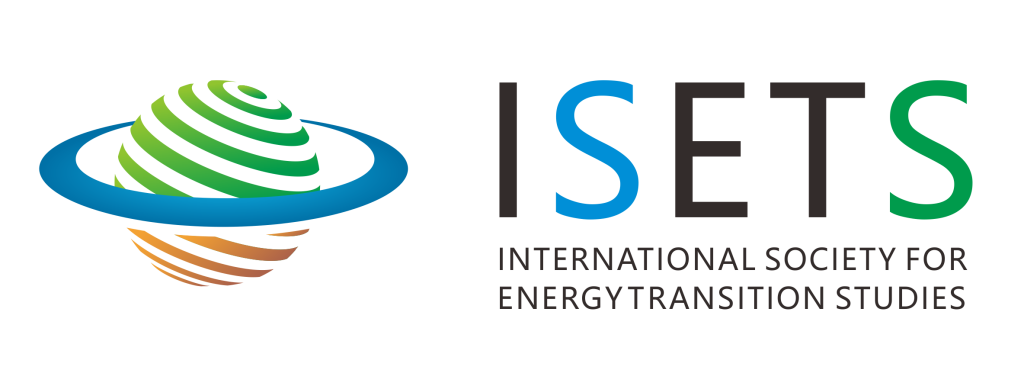Announcement: Global Final Winners for the 2025 Competition
September 2, 2025
Eight teams from across five world regions came together for the Grand Finals of the 2nd ISETS–ESCAP & 3rd ISETS Global Competition of Youth Voice on Energy Transition, held at the United Nations Economic and Social Commission for Asia and the Pacific (ESCAP) headquarters in Bangkok. As part of the 2025 Asia-Pacific Energy Week, the event highlighted the creativity and leadership of young people in advancing solutions for a clean and sustainable energy future.
At the Finals in Bangkok, the teams presented innovative and practical solutions, ranging from industrial decarbonization strategies to community-based renewable energy projects. Their proposals received high praise from judges and experts, who commended both their technical rigor and the fresh perspectives offered by young innovators.
Global Final Winners
First Prize
Team Name: O1nnovations
Team Members: Augustus Nicko Bas, Jea Jinerel Quejada, AnthonyAdrian Cale, Gwyneth Trojello
Team Name: Energy Efficient Solutions – PRISTINZ
Team Mentor: Chin Foo Goh
Team Members: Tania Callista, Delilah Ivo, Ivane Nava Tjahjana
Second Prize
Team Name: Veni Vidi Vici
Team Members: Mst Fahmida Sultana Naznin, Rafsan Jani Bin Islam, Farhan Sadik, Kazi Samia Fairuj Sejuti
Team Name: BrAIn
Team Members: Lado Bitsadze
Team Name: VisionEnerAI
Team Mentor: Yin Shibai
Team Members: Lei Yuhao, Wang Miaomiao, Zhang Qianya
Third Prize
Team Name: Rural Empowerment Ranger
Team Members: Angga Misbahudin
Team Name: Ennovators
Team Mentor: Jesmine Chowdhury
Team Members: Maria Tabassum, Arfat Jami, Tasmiah Zaman, Kazi Shahid Ahmed Galib
Team Name: Kinetic Power Systems
Team Members: Yves Frederic Ndjoh, Yves-Cartron Nkahe
Congratulations to all teams on their outstanding achievements!
Announcement: Divisional Winners for the 2025 Competition
July 15, 2025
This year, we received 105 valid submissions from participating teams. To ensure fair representation, teams were grouped into regional divisions based primarily on the geographic location of their institutional affiliation, following the United Nations regional classification system. Teams with more than two members from different regions were placed in a “Mixed Region” division. Based on the distribution of submissions and a balanced evaluation framework, Five regional divisions were ultimately established: 1) African Division, 2) East Asian Division, 3) Europe, Oceania, North America and Mixed Regions, 4) South Asian Division, and 5) Southeast Asian and West Asian Division.
Only teams that submitted all required materials at each stage were considered for evaluation. Incomplete submissions were excluded from divisional rankings and prize eligibility. Final rankings in the divisional finals were determined by a combined score from two components: the written submission (worth 85 points) and the video presentation (worth 15 points). Following a thorough review by our expert Review Panel and final approval from the Steering Committee, ten teams were selected to advance to the interview stage.
The interviews were successfully conducted on July 11, with nine teams participating. After careful assessment, eight teams were awarded Divisional First Prizes and advanced to the Global Final. The results were subsequently reviewed and approved by the Steering Committee.
The final list of teams is as follows:
(1) Team Name: BrAIn
Title: AI for Energy Efficiency and Emissions Reduction
(2) Team Name: Energy Efficient Solutions – PRISTINZ
Title: Turning Every Glass Surface Into a Climate Solution: Triple-Tech Synergy for Net Zero Buildings
(3) Team Name: Ennovators
Title: Gamified Green Energy Education For Kids
(4) Team Name: Kinetic Power Systems
Title: Harnessing Urban Traffic for Renewable Energy: The Electrical Energy-Generating Speed Breaker
(5) Team Name: O1nnovations
Title: RainWatter
(6) Team Name: Rural Empowerment Ranger
Title: One Rural One Biogas (OROB): A Collaborative Governance Model of the Pentahelix in Managing Environment
(7) Team Name: Veni Vidi Vici
Title: Hyacinth to Energy: Scalable HTC Biofuel for Clean Power & Ecosystem Revival
(8) Team Name: VisionEnerAI
Title: Smart Energy Consumption Analytics Using Remote Sensing Imagery
The 2025 Global Final Competition and the Youth Dialogue will be held on September 2, 2025, in Bangkok, Thailand, at the UN ESCAP Headquarters. We look forward to welcoming these outstanding youth teams from around the world to share their ideas and visions for a sustainable energy future.
(For detailed requirements for the upcoming events, please stay tuned for follow-up email notifications.)
Full Divisional Winner Lists:
We are delighted to announce this year’s Divisional Prize winners. Kindly note that no First Prize was awarded in the African Division, which had originally been allocated one spot, as the finalist from this division did not participate in the interview stage. In consideration of the final scores and interview evaluations, three teams from the Southeast Asian and West Asian Division have been awarded First Prizes.
Kindly note for all winning teams:
If your team photo is not displayed, it may be due to one of the following reasons:
- The photo was not submitted or could not be successfully downloaded
- The number of individuals in the photo does not match the registered team members
- The file provided was not a valid photo
If this applies to your team, we kindly ask that you contact the organizers and provide an updated and accurate team photo at your earliest convenience.
African Division
- The second prize winners
1.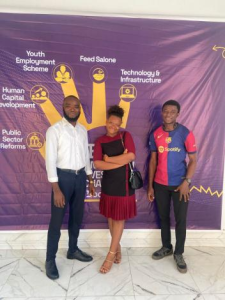
Team Name: Greentech Bioenergy
Team Slogan: Waste to Clean Cooking Energy
Title: Transforming waste into an accessible clean cooking energy, using a Flexible Biogas Digester
Team Members: Andrew Sahr Norma, Hannah E E Jusu, Solomon Momoh
Supervisor/Mentor Name: Mohamed A Kamara
Video Link: https://youtu.be/yjbKWy0JpBc
Total Score: 88.08
2.
Team Name: Reagan Technologies Zimbabwe
Team Slogan: Powering communities one step at a time
Title: Reagan Technologies kinetic tile
Team Members: Simbisai Mangwiro, Genius Mukichi
Supervisor/Mentor Name:
Video Link: https://youtu.be/X8SxfTyI7mk
Total Score: 83.50
3.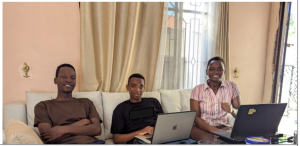
Team Name: LUKU-CHAP
Team Slogan: Powering Smart Decisions, Energizing a Sustainable Future.
Title: LUKU-CHAP: AI-Powered Smart Energy Management for a Low-Carbon, Efficient, and Inclusive Future
Team Members: Elisha Kato, Julius Marenga, Happyness Mallya
Supervisor/Mentor Name:
Video Link: https://youtu.be/K9hwP_LRfTU
Total Score: 83.00
- The third prize winners
1.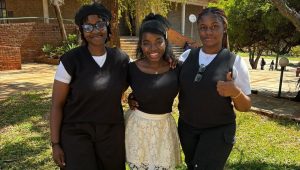
Team Name: LeefCode
Team Slogan: When nature meets innovation
Title: Greenie
Team Members: Blessed Ezeala, Alexandra Mwondoka
Supervisor/Mentor Name:
Video Link: https://youtu.be/-shgW3bkAiI
Total Score: 78.75
2.
Team Name: KasiClimate
Team Slogan: Knowledge that powers change.
Title: Just Energy Transition
Team Member: Lebogang Alice Khumalo
Supervisor/Mentor Name:
Video Link: https://youtu.be/BXStD2VfdEA
Total Score: 75.67
3.
Team Name: FikaChu
Team Slogan: More than Delivery
Title: E-bicycles sharing for last mile delivery in Africa
Team Member: Benson Mollel, Maria Mukami
Supervisor/Mentor Name:
Video Link: https://youtu.be/60M0qldnIdw
Total Score: 74.58
4.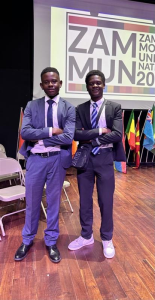
Team Name: Solar Scholars
Team Slogan: Smart Policy. Real Power.
Title: Designing a CSR-Tax Incentive Framework for Zambia’s Sustainable Energy Transition.
Team Member: Mapalo Mulenga, Yoram Sinyangwe
Supervisor/Mentor Name:
Video Link: https://youtu.be/b9VfE9Y8uuA
Total Score: 68.42
East Asian Division
- The first prize winner
1.
Team Name: VisionEnerAI
Team Slogan: Code Green, Save Bright – Sustain the Future with Might
Title: Smart Energy Consumption Analytics Using Remote Sensing Imagery
Team Members: Yuhao Lei, Miaomiao Wang, Qianya Zhang
Supervisor/Mentor Name: Shibai Yin
Video Link: https://youtu.be/MU8gesH6VNQ
Total Score: 86.67
- The second prize winners
1.
Team Name: Eco Loong Knight
Team Slogan: Low Carbon Now, Power the Future.
Title: Trash-to-Treasure: Plastic Waste Upcycled into Smart PCM-Carbon Armor for Battery Thermal Revolution
Team Members: Yitong Cao, Yuanzheng Liu, Like Wang, Long Geng
Supervisor/Mentor Name: Changhui Liu
Video Link: https://youtu.be/uzZcbafAqDw
Total Score: 84.83
2.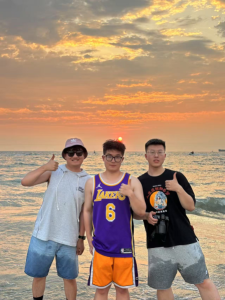
Team Name: RenewGrid Optimizers
Team Slogan: Empowering the Future: Stable, Sustainable, and Smart Grids.
Title: Stochastic Economic Dispatch Considering Frequency Support from Renewable Energy, Load, and Storage
Team Members: Ziheng Pan, Xiyi Chen, Yihao Gao
Supervisor/Mentor Name: Shujie Yao
Video Link: https://youtu.be/BczZ-QWrHZ0
Total Score: 83.42
- The third prize winners
1.
Team Name: EcoPeak Visionaries
Team Slogan: Predicting Peaks, Powering Progress: Innovating for a Net-Zero Horizon.
Title: Spatial-Temporal Patterns and Peak Forecasting of Greenhouse Gas Emissions in Chinese Cities
Team Members: Jianda Li, Yvting Mou, Fan Dong, Anning Luo
Supervisor/Mentor Name: Chong Xu
Video Link: https://youtu.be/f9DudSsb3EQ
Total Score: 83.25
2.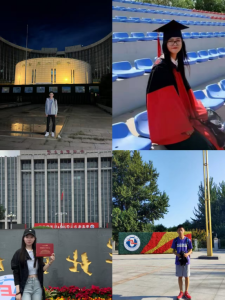
Team Name: Energy Transition Research Group
Team Slogan: The energy transition has not yet been completed, Comrades still need to make efforts!
Title: Navigating the Dual Goals of Emission Reduction and Economic Growth in China
Team Members: Jianbin Li, Fu Sun, Tianyu Han
Supervisor/Mentor Name: Yufei Ren
Video Link: https://youtu.be/VMFUXmDrFok
Total Score: 77.58
3.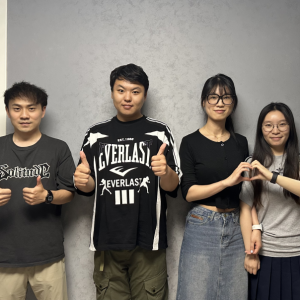
Team Name: Carbon Pioneers
Team Slogan: Empowering Change, Energizing the Future
Title: Bridging Emission Reduction and Demand in Energy Transition: A CGSP Market Design
Team Members: Xiaoying Su, Shuo Zhang, Jing Li, Yang Cao
Supervisor/Mentor Name: Donglan Zha
Video Link: https://youtu.be/4H_PNw3oaRo
Total Score: 76.25
Europe, Oceania, North America and Mixed Regions
- The first prize winners
1.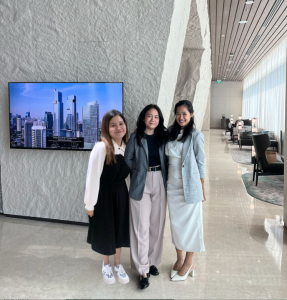
Team Name: Energy Efficient Solutions – PRISTINZ
Team Slogan: Powered by Youth, Grounded by Science & Innovation
Title: Turning Every Glass Surface Into a Climate Solution: Triple-Tech Synergy for Net Zero Buildings
Team Members: Tania Callista, Delilah Ivo, Ivane Nava Tjahjana
Supervisor/Mentor Name: Chin Foo Goh
Video Link: https://youtu.be/z0-FfEu9FO0
Total Score: 88.75
2.
Team Name: Kinetic Power Systems
Team Slogan: Turning Traffic into Power, Innovation into Impact.
Title: Harnessing Urban Traffic for Renewable Energy: The Electrical Energy-Generating Speed Breaker
Team Members: Yves Frederic Ndjoh, Yves-Cartron Nkahe
Supervisor/Mentor Name:
Video Link: https://youtu.be/FtArooc1eN8
Total Score: 87.92
- The second prize winner
1.
Team Name: ReGen Force
Team Slogan: Regenerating Resources. Reimagining the Future.
Title: Enhancing Smart Grid Efficiency through LSTM-Based Load Forecasting
Team Members: Vidit Goyal, Yeliena Bemeshchuk
Supervisor/Mentor Name:
Video Link: https://youtu.be/Pu2VKA730Kg
Total Score: 79.14
- The third prize winners
1.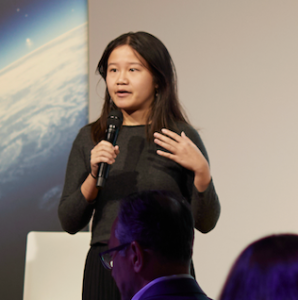
Team Name: Angela Zhong
Team Slogan: Cap-And-Share!
Title: This proposal is committed to diversity, equity, and inclusivity, ensuring that the energy transition
Team Member: Angela Zhong
Supervisor/Mentor Name:
Video Link: https://youtu.be/ub00arbWI5Q
Total Score: 79.00
2.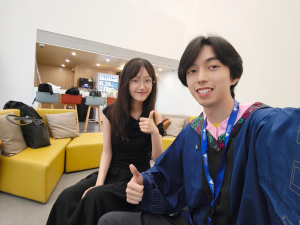
Team Name: Dingdingcar
Team Slogan: Energy saving and emission reduction!
Title: SECFC: A Transparent, Open-Source R Package for Survey-Embedded Carbon Footprint Calculation
Team Member: Ziqian Xia, Jianing Ding
Supervisor/Mentor Name:
Video Link: https://youtu.be/WOt05N4ZeiY
Total Score: 78.25
3.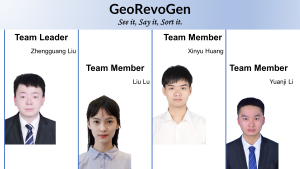
Team Name: GeoRevoGen
Team Slogan: See it, Say it, Sort it.
Title: Innovative Co-Development of Geothermal and Hydrogen Energy in Decommissioned Oil & Gas Fields
Team Members: Zhengguang Liu, Liu Lu, Xinyu Huang, Yuanji Li
Supervisor/Mentor Name: Lin Ma
Video Link: https://youtu.be/QFnWQDx2-8o
Total Score: 76.50
South Asian Division
- The first prize winners
1.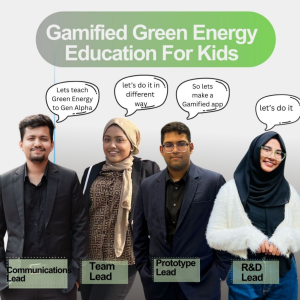
Team Name: Ennovators
Team Slogan: From gaming to habit change shaping a better tomorrow.
Title: Gamified Green Energy Education For Kids
Team Members: Maria Tabassum, Arfat Jami, Kazi Shahid Ahmed Galib, Tasmiah Zaman
Supervisor/Mentor Name: Jesmine Chowdhury
Video Link: https://youtu.be/yzVAATcv0yA
Total Score: 87.33
2.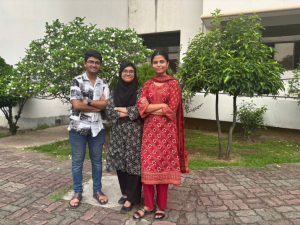
Team Name: Veni Vidi Vici
Team Slogan: Hyacinth to Hydrochar: A Cleaner Burn for a Cleaner Earth
Title: Hyacinth to Energy: Scalable HTC Biofuel for Clean Power & Ecosystem Revival
Team Members: Mst Fahmida Sultana Naznin, Kazi Samia Fairuj Sejuti, Rafsan Jani Bin Islam, Farhan Sadik
Supervisor/Mentor Name:
Video Link: https://youtu.be/Gz4dpdDvWtA
Total Score: 85.83
- The second prize winners
1.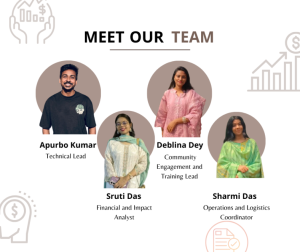
Team Name: AquaVolt
Team Slogan: Where Sunlight Meets Survival.
Title: A Floating Solar-Powered Water and Energy Systems
Team Members: Apurbo Kumar, Sruti Das, Deblina Dey, Sharmi Das
Supervisor/Mentor Name: Rashik Ahnaf
Video Link: https://youtu.be/ubqz15pi7CA
Total Score: 83.58
2.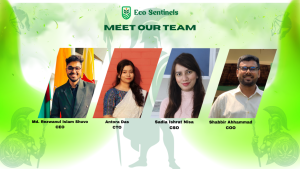
Team Name: Eco Sentinels Bangladesh
Team Slogan: Inspired by Nature, Driven by Innovation
Title: SolAgro – Harvesting Energy and Resilience for Climate-Smart Agriculture
Team Members: Md. Rezwanul Islam Shuvo, Antora Das, Shabbir Ahammad, Sadia Ishrat Nisa
Supervisor/Mentor Name:
Video Link: https://youtu.be/cuJT_yi5mtQ
Total Score: 81.92
- The third prize winners
1.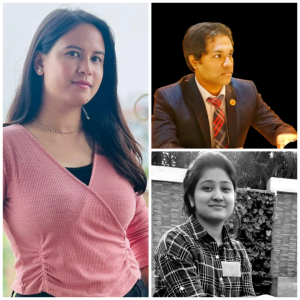
Team Name: Sustainable Sparks
Team Slogan: Empowering South Asia—Locally Led, Regionally Connected.
Title: Bangladesh-Nepal Energy Cooperation: Measuring Regional Impact
Team Members: Kriti Keshari, G.M Sifat Iqbal, Kabita Nhemhafuki
Supervisor/Mentor Name:
Video Link: https://youtu.be/T0-OaPkblQ8
Total Score: 81.08
2.
Team Name: RE-energize
Team Slogan: Leading for a Green World
Title: Re-Energize: A One-Stop Digital Platform Accelerating the Energy Transition
Team Members: Priyam Chakraborty, Navia Hasan
Supervisor/Mentor Name: Md. Fahim Hossain
Video Link: https://youtu.be/dTqR4afyEwU
Total Score: 78.63
3.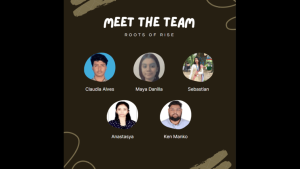
Team Name: Roots of Rise
Team Slogan: Rooted in Purpose, Rising with Impact
Title: Harnessing Footsteps: A Sustainable Economic Approach to Energy Generation through Piezoelectric Flo
Team Members: Md Emon Chowdhury, Fatema Akter Munni, Fatema Akter Polin, Mahima Sultana
Supervisor/Mentor Name: Md Naim ur Rashid
Video Link: https://youtu.be/uOMqB4cCYqY
Total Score: 76.94
Southeast Asian and West Asian Division
- The first prize winners
1.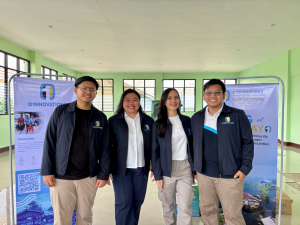
Team Name: O1nnovations
Team Slogan: Where rain meets resilience
Title: RainWatter
Team Members: Augustus Nicko Bas, Jea Jinerel Quejada, Gwyneth Trojello, Anthony Adrian Cale
Supervisor/Mentor Name:
Video Link: https://youtu.be/eVopfxaWBj8
Total Score: 87.33
2.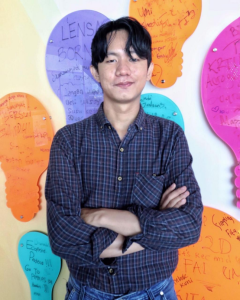
Team Name: Rural Empowerment Ranger
Team Slogan: Empowering Rural Communities, Sustaining Our Planet.
Title: One Rural One Biogas (OROB): A Collaborative Governance Model of the Pentahelix in Managing Environment
Team Member: Angga Misbahudin
Supervisor/Mentor Name:
Video Link: https://youtu.be/i-Z5QzuaDdo
Total Score: 84.25
3.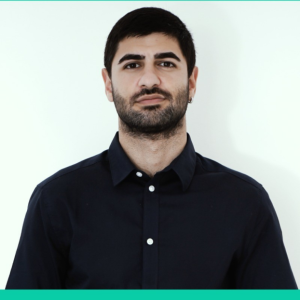
Team Name: BrAIn
Team Slogan: Per aspera ad astra
Title: AI for Energy Efficiency and Emissions Reduction
Team Member: Lado Bitsadze
Supervisor/Mentor Name:
Video Link: https://youtu.be/7p2fu_e5bao
Total Score: 83.75
- The second prize winner
1.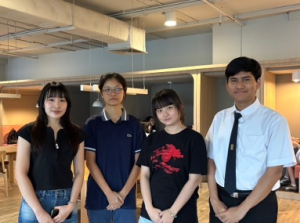
Team Name: Green Curry
Team Slogan: One Biogas, One Municipality, One Sustainable World.
Title: One Municipality One Biogas Initiative
Team Members: Pawat Bhiroonjitti, Nalinee Nikoth, Krongqwan Pimsakul, Kwankao Kittisakchoochai
Supervisor/Mentor Name:
Video Link: https://youtu.be/W9zLnhFuXAk
Total Score: 77.83
- The third prize winners
1.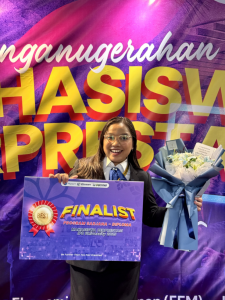
Team Name: Mudaposo
Team Slogan: Be the light, salt, and bless
Title: MUDAKARYA: IMPLEMENTATION OF LEADERSHIP SKILL WITH SERVICE LEARNING TO EMPOWERING COMMUNITY FOR ACHI
Team Member: Bintang Yolanda S Simanjuntak
Supervisor/Mentor Name:
Video Link: https://youtu.be/VYzEmmA_D-k
Total Score: 75.83
2.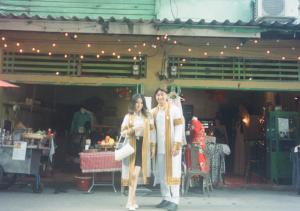
Team Name: SERCI
Team Slogan: Clean Energy must both be ACCESSIBLE and AFFORDABLE.
Title: Clean Mobility Mission
Team Members: Fahtawan Chokchaiphaisal, Sutthiphat Ketkaew
Supervisor/Mentor Name:
Video Link: https://youtu.be/huJIbzskIBU
Total Score: 75.58
Steering Committee:
- Michael Williamson, Section Chief, Energy Division, Economic and Social Commission for Asia and the Pacific (ESCAP)
- Radia Sedaoui, Chief Energy, UN Economic & Social Commission for Western Asia (ESCWA)
- Xunpeng Shi, President, International Society for Energy Transition Studies (ISETS)
Review Panel Summary:
Our Review Panel is composed of experts from across the globe, representing a variety of prestigious institutions. The panel includes:
- Mary Barton, Odikwa Geoservices, Namibia
- Beverly Besmanos, Bantay Kita Philippines, Philippines
- Taylah Bland, Asia Society Policy Institute, USA
- Sam Clissold, Carbon Tracker, United Kingdom
- Daniel del Barrio Alvarez, University of Tokyo, Japan
- Karmenova Dilnaza, Debrecen University, Kazakhstan
- Genevieve Donnellon-May, Pacific Forum, Australia
- Ganbat Enkhbayar, National Dispatching Center of Mongolia, Mongolia
- Chengcheng Fei, Texas A&M University, USA
- Emi Gui, Monash University, Australia
- Huanxiu Guo, Nanjing Audit University, China
- Fahad Haider, Eminate, Australia
- Yi Jin, Macau University of Science and Technology, Macao, China
- Kaveh Khalilpour, University of Technology Sydney, Australia
- Erica Rabelo, EC Focus, Australia
- Elena Reshetova, Fortum, Finland
- Dinita Setyawati, Ember, Indonesia
- Lyn Soo, United Nations Industrial Development Organization, China
- Wira Swadana, WRI Indonesia, Indonesia
- Farhad Taghizadeh-Hesary, Tokai University, Japan
- Jie-Sheng Tan-Soo, National University of Singapore, Singapore
- Harikrishnan Tulsidas, United Nations Economic Commission for Europe, Switzerland
- Keying Wang, Hubei University of Economics, China
- Team “Zephyr”: Zhixuan Ji and Qiyuan Wu, University of Chinese Academy of Social Sciences, China; Qi Pan, Peking University, China
- Yi Zhang, UNDP, Thailand
Announcement: Division Finalists for the 2025 Competition
June 5, 2025
The ISETS-ESCAP Youth Voice Competition Organizing Committee is excited to announce the finalists for the divisional final stage. The preliminary round of the 2nd ISETS-ESCAP & 3rd ISETS Global Competition of Youth Voice on Energy Transition has been successfully completed! This year, we received 136 submissions, of which 105 were accepted for review after removing duplicates and incomplete entries. To ensure fairness and regional balance, entries were grouped into divisions based on track and geography. To ensure fairness, each submission was anonymized and randomly assigned a number. Submissions were grouped into sets of 15 and reviewed anonymously by different reviewers. Each submission was evaluated by three separate reviewers from three different groups to minimize bias. The final score was determined by averaging the scores from all three reviewers. Following this rigorous evaluation, approximately 30% of teams were expected to advance. However, due to several teams receiving closely clustered scores near the cutoff point, 36 teams have been selected to proceed to the next stage.
Next Steps:
Video Submission
All shortlisted teams are invited to submit a video presentation by 20 June, 2025 (11:59 PM GMT). Detailed submission instructions will be shared via email.
Interviews for Regional First-Prize Winners
Final interviews to determine the Regional winners (i.e., those selected as first prize winners only, excluding second and third prize winners) are scheduled to take place in late June or early July. Interview invitations and schedules will be sent out to candidates (only those in consideration for first prize will be contacted) after the video evaluation is completed.
Please note that the overall assessment—including both the first round submission and the video evaluation—will be used to determine the second and third prize winners as well as the candidates eligible for the first prize interviews. The first prize winners will be selected from among these candidates through the final interviews.
Below is the list of the 36 finalist teams:
- Science, Technology, and Engineering Track
Team Name: AquaVolt
Title: A Floating Solar-Powered Water and Energy Systems
Team Name: BrAIn
Title: AI for Energy Efficiency and Emissions Reduction
Team Name: CANOPI
Title: Agrivoltaic Innovation for Coffee Productivity and Off-Grid Electricity
Team Name: Eco Loong Knight
Title: Trash-to-Treasure: Plastic Waste Upcycled into Smart PCM-Carbon Armor for Battery Thermal Revolution
Team Name: Ennovators
Title: Gamified Green Energy Education For Kids
Team Name: FikaChu
Title: E-bicycles sharing for last mile delivery in Africa
Team Name: GeoRevoGen
Title: Innovative Co-Development of Geothermal and Hydrogen Energy in Decommissioned Oil & Gas Fields
Team Name: Greentech Bioenergy
Title: Transforming waste into an accessible clean cooking energy, using a Flexible Biogas Digester
Team Name: Kinetic Power Systems
Title: Harnessing Urban Traffic for Renewable Energy: The Electrical Energy-Generating Speed Breaker
Team Name: LeefCode
Title: Greenie
Team Name: LUKU-CHAP
Title: LUKU-CHAP: AI-Powered Smart Energy Management for a Low-Carbon, Efficient, and Inclusive Future
Team Name: O1nnovations
Title: RainWatter
Team Name: Reagan Technologies Zimbabwe
Title: Reagan Technologies kinetic tile
Team Name: ReGen Force
Title: Enhancing Smart Grid Efficiency through LSTM-Based Load Forecasting
Team Name: RenewGrid Optimizers
Title: Stochastic Economic Dispatch Considering Frequency Support from Renewable Energy, Load, and Storage
Team Name: Turning Every Glass Surface Into a Climate Solution: Triple-Tech Synergy for Net Zero Buildings
Title: Energy Efficient Solutions – PRISTINZ
(If your team name and entry title appear to be reversed, please contact the youth organizers to correct them.)
Team Name: Veni Vidi Vici
Title: Hyacinth to Energy: Scalable HTC Biofuel for Clean Power & Ecosystem Revival
Team Name: VIRIDIS TECH
Title: Community-Driven Algae Biodiesel and Livestock Feed Production for a Sustainable Energy Transition
Team Name: VisionEnerAI
Title: Smart Energy Consumption Analytics Using Remote Sensing Imagery
- Social Science and Other Disciplines Track
Team Name: Angela Zhong
Title: Cap and Share on Coal
Team Name: Carbon Pioneers
Title: Bridging Emission Reduction and Demand in Energy Transition: A CGSP Market Design
Team Name: deepwork
Title: Coupling Closed-Loop Power Battery Recycling Systems with Energy Transition Policies
Team Name: Dingdingcar
Title: SECFC: A Transparent, Open-Source R Package for Survey-Embedded Carbon Footprint Calculation
Team Name: EcoPeak Visionaries
Title: Spatial-Temporal Patterns and Peak Forecasting of Greenhouse Gas Emissions in Chinese Cities
Team Name: Eco Sentinels Bangladesh
Title: SolAgro – Harvesting Energy and Resilience for Climate-Smart Agriculture
Team Name: Energy Transition Research Group
Title: Navigating the Dual Goals of Emission Reduction and Economic Growth in China
Team Name: Galym
Title: Designing Equitable End-of-Life EV Battery Policy in Lower-Income Economies: Insights from the US-Me
Team Name: Green Curry
Title: One Municipality One Biogas Initiative
Team Name: KasiClimate
Title: Just Energy Transition
Team Name: Mudaposo
Title: MUDAKARYA: IMPLEMENTATION OF LEADERSHIP SKILL WITH SERVICE LEARNING TO EMPOWERING COMMUNITY FOR ACHI
Team Name: RE-energize
Title: Re-Energize: A One-Stop Digital Platform Accelerating the Energy Transition
Team Name: Roots of Rise
Title: Harnessing Footsteps: A Sustainable Economic Approach to Energy Generation through Piezoelectric Flo
Team Name: Rural Empowerment Ranger
Title: One Rural One Biogas (OROB): A Collaborative Governance Model of the Pentahelix in Managing Environment
Team Name: SERCI
Title: Clean Mobility Mission
Team Name: Solar Scholars
Title: Designing a CSR-Tax Incentive Framework for Zambia’s Sustainable Energy Transition
Team Name: Sustainable Sparks
Title: Bangladesh-Nepal Energy Cooperation: Measuring Regional Impact
The 2nd ISETS-ESCAP & 3rd ISETS Global Competition of Youth Voice on Energy Transition
Due to the extended submission deadline, the entry evaluation is still ongoing. The shortlist will be announced by June 10th at the latest. Thank you for your patience.
In response to a significant number of emails from participants who either ran out of time to complete their entries due to some confusion around the deadline or forgot to click the “Submit” button at the final step of the process, we are pleased to announce that the submission portal will remain open until:
🕕 18:00 (Sydney Time, GMT+10) on Monday, 5 May 2025. Please note that all times mentioned are in Sydney Time (GMT+10).
We kindly remind all entrants that clicking the “Submit” button is essential to confirm your submission.
🔔Key Reminders🔔
1. Incomplete Submissions
If you have not yet completed your submission, please upload your materials as early as possible and ensure that you click the “Submit” button at the final step to confirm.
2. Revision Requests
If you have already submitted but need to revise your entry, please email us at 📧 youthvoice_isets@163.com before 18:00 (Sydney Time, GMT+10) on Sunday, 4 May 2025, and we will reopen your submission for editing.
3. Common Submission Issues
Our preliminary format review has identified the following issues in several submissions:
a. Title exceeds character limit and may not display correctly.
b. Team name, main content, and supplementary documents must be anonymized to ensure fairness.
c. Signed declaration form is missing. (This is mandatory — please refer to the official submission guidelines.)
We kindly request all teams to review their submissions and address any of the above issues if applicable. If updates are needed, contact us promptly at the email above.
We appreciate your enthusiasm, creativity, and commitment to building a more just and sustainable energy future. We look forward to receiving your final submissions!
Introduction
The International Society for Energy Transition Studies (ISETS), in partnership with the United Nations Economic and Social Commission for Asia and the Pacific (ESCAP), jointly announces the annual Youth Voice on Energy Transition Program. This initiative aligns with the UN Secretary-General’s commitment to engaging youth in discussions on critical global issues, including the transition to sustainable energy. Recognizing the immense potential of young individuals as key drivers of positive change, the Program seeks to empower their energy, creativity, and innovative spirit to advance the global pursuit of a sustainable energy future.
The Program comprises two principal components: the Global Competition of Youth Voice on the Energy Transition (hereafter Youth Voice Competition) and the Youth Dialogue. The Youth Voice Competition invites youth worldwide to present their innovative ideas, technologies, products, projects, and solutions aimed at advancing the energy transition. Winners of the competition will be invited to participate in the Youth Dialogue at ESCAP headquarters, alongside energy-related meetings and events each year.
This arrangement provides a unique platform for youth to engage directly in discussions, observe official UN energy events, and enter into dialogues with officials and policymakers. Going beyond merely engaging young voices, this groundbreaking program seeks to empower them to become part of the global dialogue on energy transition.
The ISETS-ESCAP Global Competition of Youth Voice on the Energy Transition is structured around several core objectives: amplifying youth voices in support of energy transition and green development, fostering actions by young people from diverse backgrounds to engage in the just energy transition, encouraging creativity in the development of new technologies and solutions for energy transition, and facilitating collaboration across borders to combat climate change.
Eligibility
It is open to youth aged 18-30, with dates of birth ranging from January 1, 1995, to December 31, 2007, for the 2025 competition year. Participants can enter the competition as individuals or in small groups, with a maximum group size of four (4) people. Please note that team members cannot be changed once submitted.
Tracks
This year’s competition offers two distinct tracks. Each participating team must select ONE track that aligns with the theme of their submission:
- Science, Technology, and Engineering Track
This track is designed for entries that introduce innovative products, cutting-edge technologies, engineering solutions, analytical frameworks, or inventions. Submissions should aim to advance renewable energy development or facilitate the broader energy transition. - Social Science and Other Disciplines Track
This track invites entries addressing topics such as policy analysis, economic frameworks, financial strategies, and other areas relevant to the energy transition. Submissions may explore the societal, institutional, or systemic changes required to support sustainable energy systems.
Submissions can be included, but are not limited to the following types of entries:
- Educational and Awareness Campaigns: Creative and impactful campaigns or programs designed to raise awareness about the importance of the energy transition and how individuals and communities can contribute. These could leverage various media, including social media, to reach a wide audience.
- Social Science Research and Analyses: Data-driven research that provides new insights into the energy transition, including market analyses, policy impact studies, or technological feasibility studies. Submissions could highlight key trends, barriers, and opportunities within the energy transition space.
- Pilot Projects or Case Studies: Documentation and analysis of pilot projects that have been implemented and can serve as a model or inspiration for similar initiatives. These could showcase successful integration of renewable energy sources into existing grids, community-led energy projects, or innovative business models in the energy sector.
- Artistic and Creative Expressions: Projects that use art or creative media to explore and communicate themes related to energy transition, such as installations, performances, or visual art that raise awareness or envision the future of energy.
- New Models or Frameworks: Innovative models or frameworks for energy systems, consumption, distribution, or policy that promote sustainability and efficiency. These could include circular economy models, decentralized energy systems, or novel regulatory and market mechanisms.
- Innovative Action Plans or Solutions: Comprehensive strategies or action plans aimed at facilitating the energy transition at local, regional, national, or global levels. These could address specific challenges such as financing renewable energy projects, increasing public awareness and participation, or overcoming technical barriers to energy access.
- New Products: Technological innovations, product designs or business models that contribute to renewable energy generation, energy storage, energy efficiency, or reduction in energy consumption. Examples could range from solar panels, wind turbines, and battery technologies to energy-efficient appliances and smart grid solutions.
- Technology Applications and Software Solutions: Software, apps, or platforms that support energy transition goals. This could include blockchain for energy trading, AI for optimizing energy consumption, or digital platforms for promoting community-based renewable energy initiatives.
Competition Details
- Membership: All participants must register as ISETS associate members and join the Youth Group on the ISETS website. 2025 Membership Registration and Group Joining Guidelines.
- Submission Portal: Entries must be submitted via the ISETS website. The submission portal opens on April 1st.
- Divisions: To ensure balanced regional representation, participating teams will be grouped into divisions based on the UN regionalization scheme.
- Entry Submission: During the divisional stage, participants must submit a written proposal. Shortlisted teams will be required to provide an additional video submission. All entries must follow the provided template and address each selection criterion outlined within it.
- Language Requirement: All submissions must be in English to maintain uniformity and accessibility in this international competition.
- Originality: Submissions must be original and must not have previously won at the divisional or global final of the ISETS-ESCAP Youth Voice Competition.
Important Dates
- 1 April 2025: Registration opens for the 2nd ISETS-ESCAP Youth Voice Competition.
- 30 April 2025: Deadline for the proposal submission.
- 31 May 2025: Announcement of the divisional shortlists and information for video submission.
- 15 June 2025: Deadline for video submissions.
- 15 July 2025: Announcement of the divisional winners and information for global final competition.
- 1-5 September 2025: Participation in the ISETS-ESCAP Youth Dialogue, which will be held during the Asia Pacific Energy Week in Bangkok, Thailand.
About ISETS
The International Society for Energy Transition Studies (ISETS) is an independent, non-profit organization, dedicated to knowledge sharing and advancing the global dialogue on energy transition and sustainability. It is being operated by a group of volunteers. Registration at www.isets.org as Associate Member is free permanently. Currently, ISETS has more than 1,800 members from 80 countries and regions.
About ESCAP
The United Nations Economic and Social Commission for Asia and the Pacific (ESCAP), established by the Economic and Social Council of the United Nations and having its headquarters at Bangkok, Thailand, is responsible for promoting inclusive, resilient and sustainable development in the region through generating action-oriented knowledge, and by providing technical assistance and capacity-building services in support of national development objectives, regional agreements and the implementation of the 2030 Agenda for Sustainable Development.
We sincerely invite the youth to participate actively and contribute to energy transition. For more details, please visit the official competition website (https://isets.org/youth-competition-2025/). For any inquiries, please contact youthvoice_isets@163.com.
🌸 A heartfelt thank you to our collaborators for supporting and promoting our event on social media. We look forward to welcoming everyone to this special occasion!
UN ESCAP: https://tinyurl.com/2abomso5
UNECE Sustainable Energy: https://tinyurl.com/2d86k3mk
Participant Guidelines
Submission Requirements
- Inclusivity and Accessibility: Participation in the competition and dialogue is free, with efforts made to ensure diversity, inclusiveness, and broad representation.
- Language: All submissions must be in English to ensure uniformity and accessibility in this international competition.
- Submission Format: Participating teams are required to submit their entries using the provided template, addressing each of the selection criteria outlined within it. They may also attach detailed information as needed. All materials must be consolidated into a single PDF file. Submissions that do not adhere to the provided template will be disqualified.
- Registration: To participate, the corresponding members must first register on the ISETS website and join the Youth Group on the ISETS website (isets.org).
- Video Presentations: For participants invited to submit videos, please ensure your video is in English and includes captions. Your video should contain complete content, a clear structure, and self-consistent logic. The submission guide will be announced in the invitation letter.
- Rights for Use and Publicity: By submitting entries for the competition, including written documents, videos, and other media, participants grant ISETS and other organizing bodies the right to non-commercial use and the publicity of the entries. [Included as a declaration in the Template]
- Content Guidelines: Entries must not contain pornography, violence, or engage in religious, racial, and regional discrimination. Submissions must comply with relevant laws and regulations. Originality is required, and plagiarism is strictly prohibited. Videos should not contain advertisements, watermarks, or logos. All entries must adhere to copyright laws and ensure no intellectual property disputes.
- Participant Information: When submitting entries in the first stage, all group members must accurately provide their dates of birth according to the template instructions. Groups will be disqualified from advancing and from prize eligibility if any participant is found not to meet the age requirements.
Participant Eligibility and Team Composition (18-30)
The Competition invites young thinkers and doers from UN Member States to contribute their ideas towards accelerating the global energy transition. It is open to youth aged 18-30, with dates of birth ranging from January 1, 1995, to December 31, 2007, for the 2025 competition year.
- Individuals or Small Groups: Participants can enter the competition as individuals or in small groups, with a maximum group size of four (4) people.
- Supervisor/Mentor Involvement: Teams may nominate a supervisor or mentor who has offered substantial guidance and support throughout the competition process. It’s important to note that mentors are NOT classified as a team member; therefore, they are not subject to age restrictions.
Selection Criteria
To ensure a comprehensive and impactful contribution to the energy transition, the ISETS-ESCAP Youth Voice on Energy Transition Program has established a detailed set of assessment criteria. These criteria are designed to evaluate the potential of each submission to make a meaningful difference in the global effort toward sustainable energy systems.
The initial submission to the Competition must include an address to the selection criteria (A template will be provided). A detailed document to support the submission is highly recommended:
Screening Criteria (Entries that fail to meet any criteria will not be further assessed)
- Team Qualification: The teams affirm that all members are within the specified age range and hail from UN Member States.
- Impact and Relevance to Energy Transition: Entries must directly address a specific challenge or opportunity within the energy transition including critical mineral development that is essential for the energy transition, demonstrating a clear and thorough understanding of the issue at hand. Submissions should articulate how their proposed solution or innovation has the potential to contribute positively to the energy transition.
Technical Criteria (Submissions NEED to address these criteria)
- Innovation (20 Points): Solutions should showcase originality in approach, methodology, or technology. The assessment will consider how the entry introduces new concepts, ideas, or innovations that stand out from existing solutions.
- Versatility (20 Points):Show versatility for adaptation and describe implementation potential in different scale and different region.
- Sustainability (20 Points): Demonstrate the long-term viability of the solution in terms of environmental, economic, and social factors.
- Impact (20 Points): The expected impact of the solution on the energy transition should be significant and measurable. Entries should provide evidence or projections of how their solution can contribute to reducing carbon emissions, increasing energy efficiency, promoting renewable energy, and addressing environmental and social impacts, among other impact metrics.
- Representativeness (5 Points): Reflects a commitment to diversity and equity within the team composition, including but not limited to: Gender balance; Inclusion of underrepresented groups in terms of ethnicity, disability, and socio-economic background is also encouraged.
For those who are further invited to submit videos or make presentations, the clarity of the presentation will be further assessed.
- Communication (15 Points): The clarity, coherence, and persuasiveness of the presentation of the idea, including how effectively it communicates its value proposition and engages the audience. The shortlist will be based on the total scores out of 100.
These criteria are designed to identify and reward entries that are not only innovative and impactful but also practical and adaptable, reflecting the complexities and scale of the challenge posed by the global energy transition.
Regional Division and Awards System
To ensure a fair and inclusive event, the organizers have established a regional division system and awards criteria based on participation levels.
Division Arrangements
- National Divisions: When the number of participants from a single country exceeds 50, a separate competition division may be established for them. This approach allows us to manage the competition more effectively and ensure participants compete in a more comparable and fairer environment.
- Global Open Division: This division serves as a vibrant and inclusive arena for participants who do not fall within the specific national divisions.
- Others: The organizing committee reserves the right to determine divisions as needed.
Awards System
- Allocation of Awards: Within each division, awards will be allocated based on the effective number of participants. The First, Second, and Third Prizes will account for approximately 20% of the total number of participants.
- Awards Distribution for the Divisions [To be determined]:
Awards will be distributed in each division as follows:
- First Prize: Awarded to the top performers, constituting 5% of the total participants in each division. First Prize winners will be invited to participate in the final stage (global competition)
- Second Prize: Awarded to the next tier of performers, comprising the following 5% of total participants.
- Third Prize: Awarded to the subsequent tier, constituting the next 10% of participants.
The ISETS-ESCAP Youth Dialogue at the Bangkok UN Regional Headquarters
Top of Form
At least one representative from each division’s First Prize-winning team, along with other selected representatives who reflect diversity, will be invited to the United Nations regional Headquarters in Bangkok for the Youth Dialogue. Here, they will also have the opportunity to observe associated United Nations events. This provides a platform to further amplify their voices and ideas on a global stage. Participants in the Dialogue may apply for travel grants to support their transportation and accommodation needs, if necessary. Such requests must be submitted on a case-by-case basis.
Selection Process
Division Management
- Registration and Division Allocation: Once the deadline has passed, participants will be allocated to their respective divisions based on their country or region and the overall number of entrants from these areas.
- Competition: Participants will compete within their divisions, with performances or submissions judged according to the prescribed criteria.
- Judging: The Competition Organizing Committee will appoint a division selection committee to manage the logistics and execution of local competitions to identify division winners. Furthermore, each entry must be reviewed and scored by at least three experts. In instances of significant score discrepancies, the Chair will mediate and make a final decision.
Division Selection Process (Tentatively)
The competition progresses through three pivotal stages: Preliminary, Semi-final, and Final. These stages are designed to rigorously evaluate and showcase the best ideas and solutions from young innovators worldwide.
- Preliminary Assessment (Long List): The division selection committee will evaluate the initial submissions, advancing the top 30% of teams (from a total score of 85) from each division to the next stage.
- Multiple Media Presentation: Teams that have passed the Preliminary stage are invited to submit a multi-media presentation (including video, animation, etc.) of up to 4 minutes, further elaborating on their initial submissions.
- Second Assessment (Short List): The division selection committee will shortlist 20% of the total participating teams in each division based on the multiple media presentations (from a total score of 100).
- Division Finalist Live Presentations: The top 20% of participating teams are invited for a live presentation. The division selection committee will determine the division’s First, Second, and Third Prize winners.
Final Stage (Global Competition)
- On-site Presentations: First Prize winners from each division are invited to deliver a comprehensive on-site presentation. If unable to attend in person, winners may coordinate with the organizers to participate online.
- Global Judging: The global selection committee will assess these presentations to determine the Global First, Second, and Third Prize winners of the competition.
- All participants in the final stage (global competition) will be categorized as either first, second, or third-place winners.
Schedule for the 2025 Competition
- 1 April 2025: Registration opens for the 2nd ISETS-ESCAP Youth Voice Competition.
- 30 April 2025: Deadline for the proposal submission.
- 31 May 2025: Announcement of the divisional shortlists and information for video submission.
- 15 June 2025: Deadline for video submissions.
- 15 July 2025: Announcement of the divisional winners and information for the global final competition.
- 1-5 September 2025: Participation in the ISETS-ESCAP Youth Dialogue, which will be held during the Asia Pacific Energy Week in Bangkok, Thailand.
Note: The cutoff time for each date listed above is 24:00 (GMT+0).
Should you have any questions, please don’t hesitate to contact us at youthvoice_isets@163.com .
ISETS-ESCAP Global Competition of Youth Voice on Energy Transition
Submission Template 2025
Submission Title
Track [Each entry can only be submitted to one track]
| Science, Technology, and Engineering Track: This track is designed for entries that introduce innovative products, cutting-edge technologies, engineering solutions, analytical frameworks, or inventions. Submissions should aim to advance renewable energy development or facilitate the broader energy transition.
Social Science and Other Disciplines Track: This track invites entries addressing topics such as policy analysis, economic frameworks, financial strategies, and other areas relevant to the energy transition. Submissions may explore the societal, institutional, or systemic changes required to support sustainable energy systems. |
Submission Checklist [Incomplete submissions will not be assessed]
| Team Information Completed
Abstract Provided Screening Criteria Addressed Technical Criteria Addressed Detailed Document to support your submission, if available Rights for Use and Publicity Consent Signed |
Abstract: (150 words limit) Provide a concise summary of your submission, including its core objectives and potential impact on the energy transition.
Addressing the Screening Criteria
Impact and Relevance to Energy Transition: (300 words limit) Describe the specific challenge or opportunity within the energy transition that your entry addresses and how your proposed solution or innovation can contribute positively.
Addressing the Technical Criteria
1.Innovation (20 Points):(300 words limit) Detail the originality of your solution, highlighting new concepts or innovations.
2.Versatility (20 Points):(300 words limit) Show versatility for adaptation and describe implementation potential in different scales and different regions.
3.Sustainability (20 Points):(300 words limit) Demonstrate the long-term viability of the solution in terms of environmental, economic, and social factors.
4.Impact (20 Points):(400 words limit) Provide evidence or projections of your solution’s real-world impact on the energy transition.
5.Representativeness (5 Points):(200 words limit) Describe your team’s commitment to diversity and equity.
Participant Information
| Team Name | |
| Age Range of Team Members | |
| Major Contact Email | |
| Second Contact Email | |
| Team Leader | Name:
Date of Birth: Institution: Email: |
| Team Member 1
( if applicable) |
Name:
Date of Birth: Institution: Email: |
| Team Member 2
( if applicable) |
Name:
Date of Birth: Institution: Email: |
| Team Member 3
( if applicable) |
Name:
Date of Birth: Institution: Email: |
| Countries of Residence | |
| Supervisor/Mentor
(if applicable) |
Name:
Institution: Email: |
Team Photo and Slogan
| Team Photo: Provide a group photo that includes all members and reflects your team’s spirit and collaboration. |
| Team Slogan: Provide a captivating and inspiring slogan to represent your team’s vision and mission. |
Declaration
| 1. Team Qualification: By signing below, we, the undersigned, hereby confirm that all individuals listed as part of our team fall within the specified age range and are legal residents or nationals of United Nations Member States. The team members cannot be changed once the submission has been made. We understand that providing false or misleading information may result in our disqualification from the ISETS-ESCAP Global Competition of Youth Voice on Energy Transition.
2. Rights for Use and Publicity Consent: By submitting entries for the competition, including written documents, videos, and other media, we, the undersigned, grant ISETS and other organizing bodies the right to non-commercial use and the publicity of the entries. We understand and agree that our submission may be used for the purposes of promotion, education, and dissemination of knowledge related to the energy transition without any form of compensation. 3. Confirmation of Entry Form: Please specify whether the submission represents the original work of the participating member or if it is submitted on behalf of the organization. Individual Originality Organizational Representation 4. Confirmation of Originality: By signing below, we, the undersigned, hereby confirm that the submission is original and have not previously won at the divisional or global final of the ISETS-ESCAP Youth Voice Competition. Team Leader and Member Signatures: · Name: Signature: Date: · Name: Signature: Date: · Name: Signature: Date: · Name: Signature: Date: Supervisor/Mentor Signature: · Name: Signature: Date: |
Click here to download the full template:2025 YV Competition Submission Template
Express Your Creativity and Ideas
Submission Portal: click here.
Submission Guidelines
Step 1: Please click on “LOGIN/REGISTER” on this website.

Step 2: Please log in to your member portal. If you are new, kindly register for an account. If you have forgotten your password, you may reset it. Your username is the one you selected during registration, but you may also use your email address.
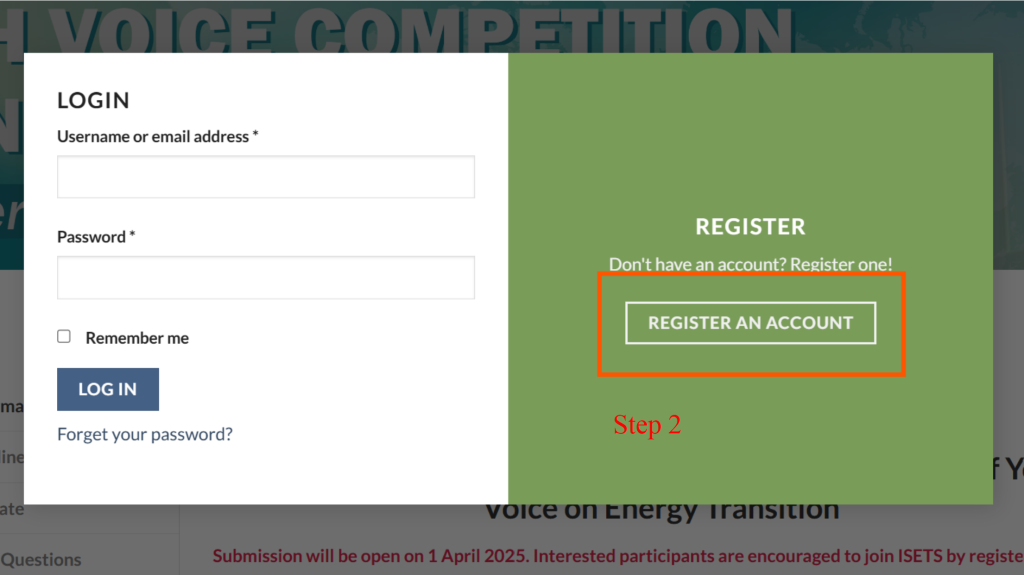
Step 3: You will receive an email at your registered email address—kindly click the link provided in the email to complete your registration. 
Step 4: To proceed, click on the “Personal Account” section in the upper right corner of the webpage. Please firstly join the Youth Group by clicking on “Personal Account” section in the upper right corner of the webpage and navigating to “My Groups.”
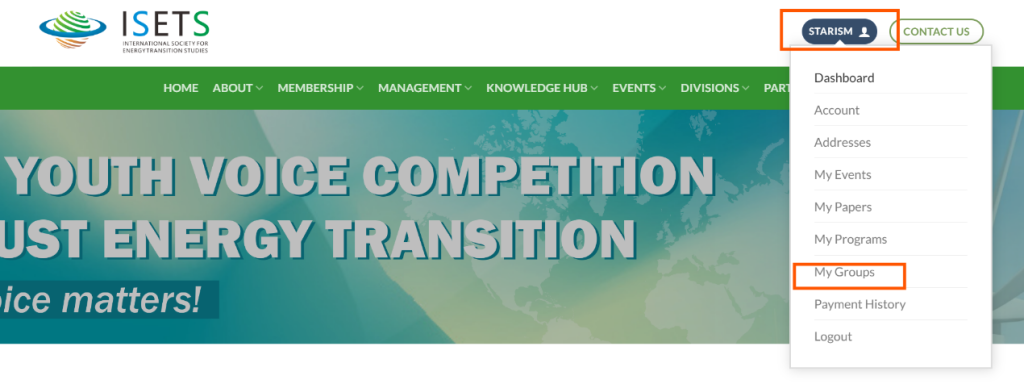
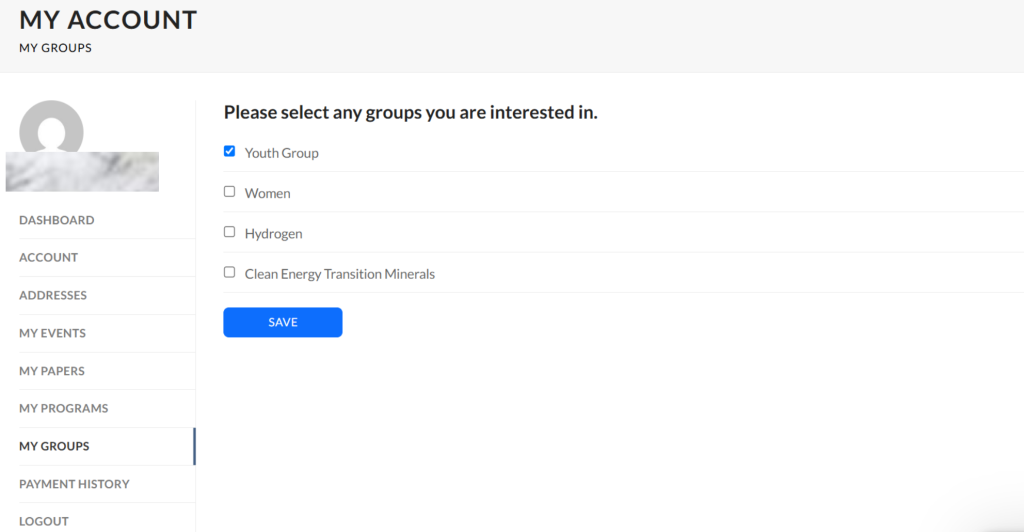
Kindly note that if this is your first time registering, your name may appear as “[Empty Empty]” instead of your actual name. To update it, simply navigate to the “Personal Account” section and click on “ACCOUNT.”
Step 5: Next, navigate to “My Programs,” where you will find “2025 ISETS-ESCAP Youth Voice Competition” under “AVAILABLE PROGRAMS.” Please click “Add Submission” to begin submitting your proposal.
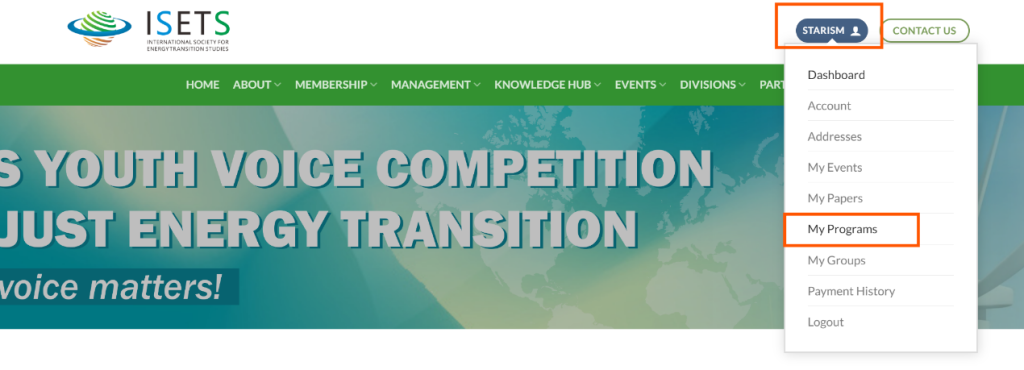
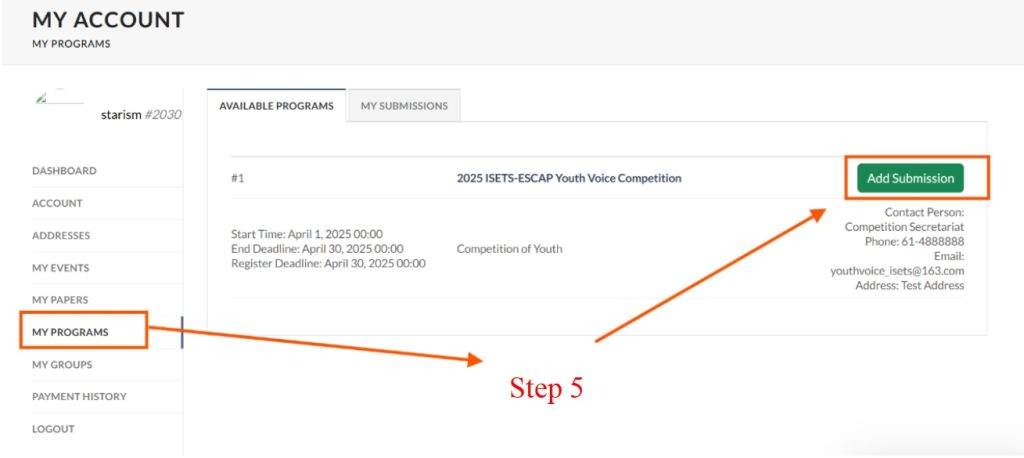
Step 6: Following the instructions provided to complete your submission. Please note that all application information must be completed online, except for the declaration form. Kindly click here to download the declaration form, ensure it is signed by all team members and the advising instructor, and upload the signed file at the Declaration step in addition to clicking to proceed.
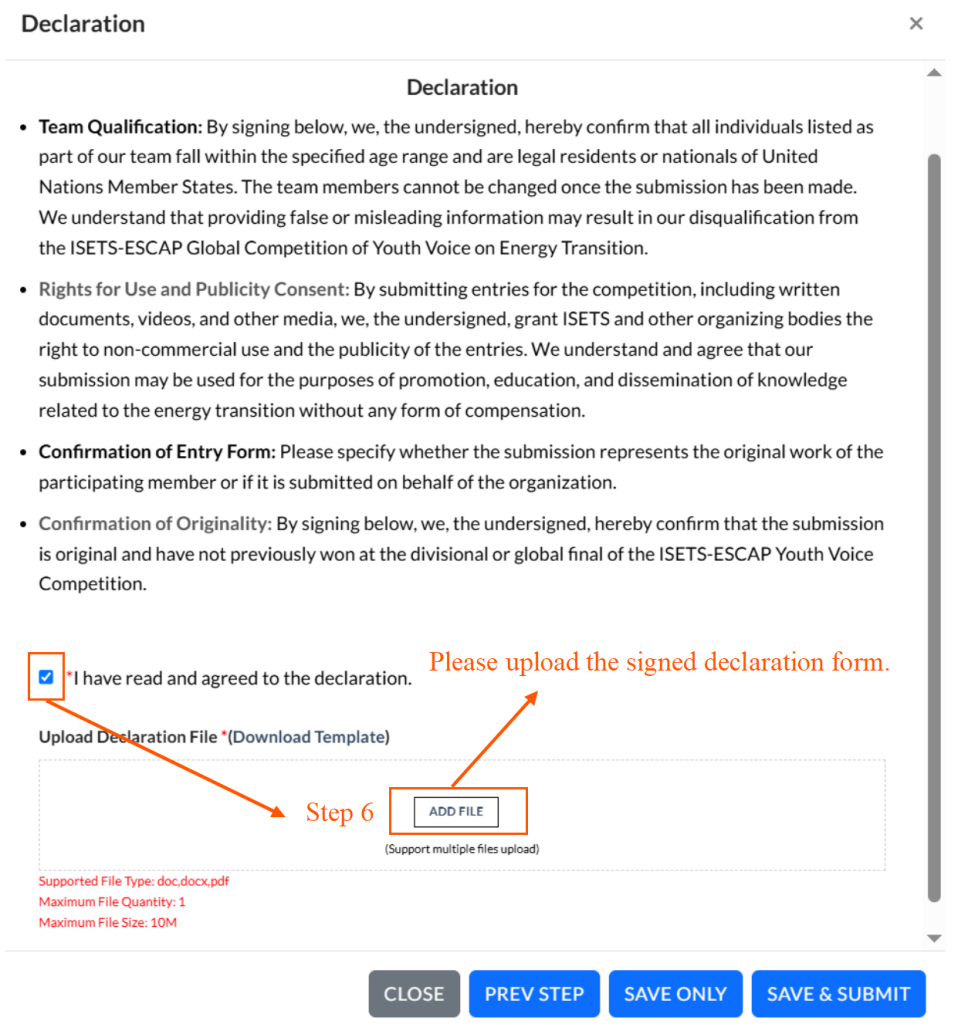
Step 7: Once you have ensured that all required information is complete, please click “SAVE & SUBMIT.” A confirmation window will appear—kindly select “OK” to proceed.

Step 8: You have successfully submitted your proposal when you see the following confirmation message. Please close the window, and you will be redirected to the “AVAILABLE PROGRAMS” page.

Kindly note that once your entry has been submitted, no further modifications or additional submissions will be allowed.

Step 9: If you would like to view your submission, simply click “MY SUBMISSIONS” to check your submission status. By clicking “View,” you will be able to see all the information you provided.

Please do not hesitate to contact us if you encounter any issues: youthvoice_isets@163.com; isets@isets.org
Frequently Asked Questions (FAQ) about the Competition
Q1: Must all team members come from the same country or school?
A: No, we encourage cross-country, cross-school, and interdisciplinary teams, provided all members meet the age and team size requirements. Teams must select the appropriate regional division based on the regions where members are located, in accordance with the UN geographic division.
Q2: Are there any age or number limits for team advisors?
A: There is no age limit for advisors, but each team can invite only one advisor. Participants cannot simultaneously serve as advisors for another participating team.
Q3: How can I register as an ISETS Associate Member? Is there a fee?
A: All participants must register as ISETS Associate Members for free via the ISETS website (www.isets.org).
Q4: Is there a proposal template? What should the proposal include?
A: Yes, all proposals must follow the official template, addressing the evaluation criteria outlined within. Proposals not submitted in the required format may be disqualified. Previous proposals can be referenced via the inaugural ISETS-ESCAP Youth Voice Competition website: https://isets.org/youth-competition-2024/.
Q5: How should teams select the appropriate competition track? Can one team submit multiple proposals?
A: Teams must select one track based on their proposal theme (Science, Technology, and Engineering Track or Social Science and Other Disciplines Track). Multiple submissions to different tracks by the same team are not allowed. However, if different members from the same course or group submit proposals on different topics, excessive similarity will be regarded as a single proposal.
Q6: Will participants receive certificates?
A: Yes, all participants who submit a complete proposal will receive an electronic participation certificate via the ISETS website. Regional division and global final winners will receive official certificates.
Q7: What should I do if I encounter technical issues during submission?
A: Contact the official email youthvoice_isets@163.com immediately and provide screenshots or error messages as proof. Early submission is strongly recommended to avoid last-minute system congestion.
Q8: Can team members be changed after registration?
A: No. Once the team list is submitted, no changes are allowed. Please confirm all team information before registering.
Q9: What growth opportunities are available for participants?
A: All participants can apply to attend the Asia-Pacific Energy Week at the UN ESCAP headquarters from September 1–5, 2025. Regional division first prize winners will be invited to speak at the Youth Dialogue and may apply for travel grants. Global Final winners will have the chance to become Youth Ambassadors, engaging in international youth activities and forging global collaborations.
Q10: Can previous teams participate again?
A: Proposals that won in the regional division or global final of the inaugural ISETS-ESCAP Youth Voice Competition cannot be resubmitted. However, the same teams are welcome to submit new proposals.
Q11: Can a participant be affiliated with multiple teams at the same time?
A: Participants are kindly asked to join only ONE team for the competition. Please also note that each team is allowed to submit only ONE proposal.
STEERING COMMITTEE
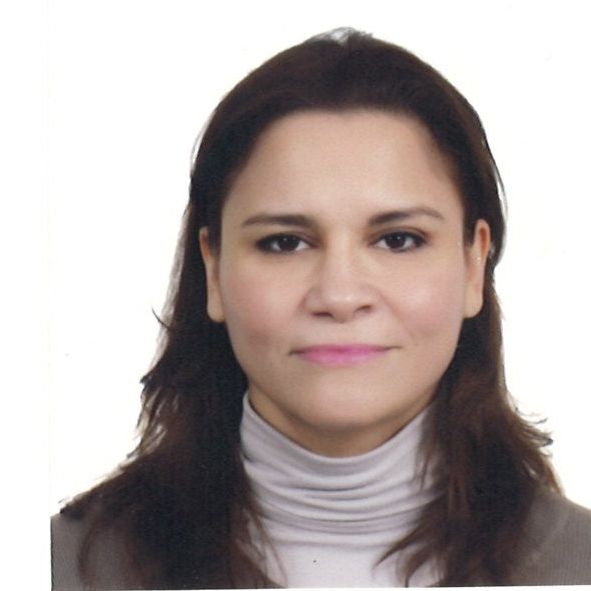
Radia SEDAOUI
Chief Energy, UN Economic & Social Commission for Western Asia
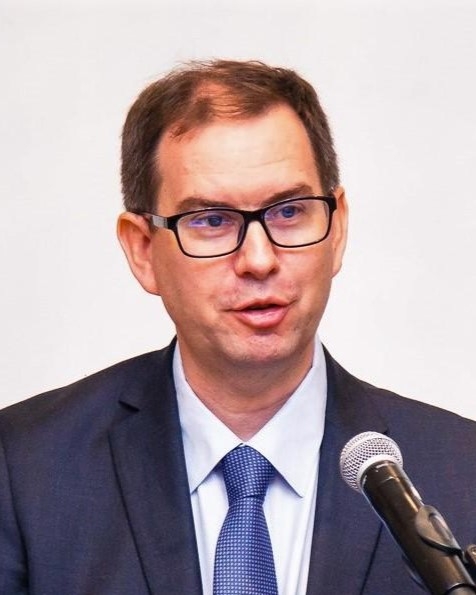
Michael WILLIAMSON
Section Chief, Energy Division, Economic and Social Commission for Asia and the Pacific
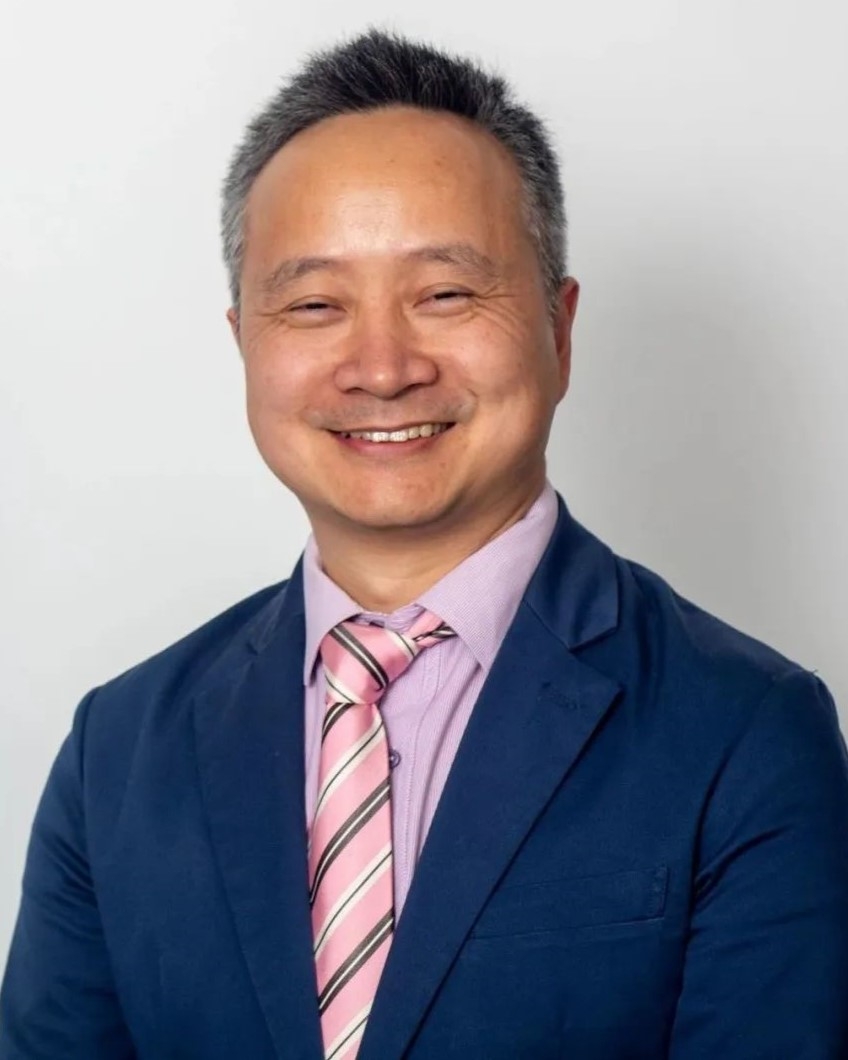
Xunpeng SHI
President, International Society for Energy Transition Studies . Professor, University of Technology Sydney, Australia
OGRANIZING COMMITTEE

Muyi YANG
Secretary, International Society for Energy Transition Studies . Senior Researcher, Ember
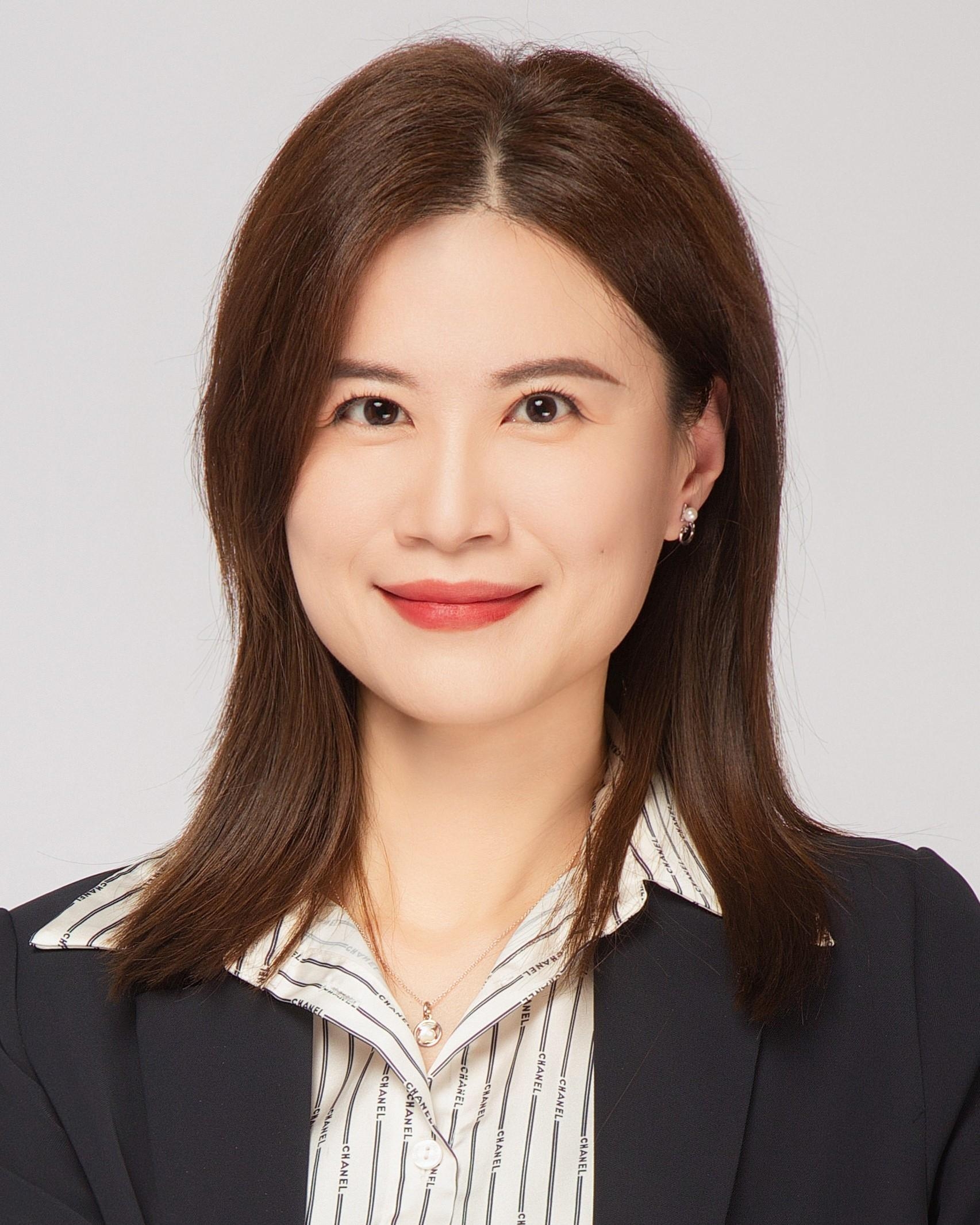
Chin-Hsien YU
Deputy Secretary, International Society for Energy Transition Studies. Professor, Southwestern University of Finance and Economics
YOUTH ORGANIZERS

Xingyu CHEN
Ph.D. Student at SWUFE. Majoring in Energy Economy and Environmental Policy at School of Public Administration.

Yi FU
Ph.D. Student at SWUFE. Majoring in Economic History at School of Economics. Secretariat Assistant, ISETS.

Xinrui LI
Ph.D. Student at SWUFE. Majoring in Development Economics at School of Economics. Secretariat Assistant, ISETS.

Miaomiao LIU
Ph.D. Student at SWUFE. Majoring in Public Economics at School of Public Administration.

Yingyi SHI
Ph.D. Student at SWUFE. Majoring in Development Economics at School of Economics. Secretariat Assistant, ISETS.

Jiao TIAN
Ph.D. Student at SWUFE. Majoring in Public Economics at School of Economics. Secretariat Assistant, ISETS.
2025 ISETS Youth Ambassadors Global Recruitment Announcement
Empowering Youth Leaders, Leading the Energy Future!
[29 August 2025] After a rigorous review and comprehensive evaluation by the ISETS Committee, based on applicants’ exceptional performance in leadership, social practice, innovation capability, and global perspective, we are pleased to officially announce the first cohort of ISETS Youth Ambassadors. In the next two year, they will represent the ISETS Youth Network in international dialogues, policy advocacy, and worldwide outreach.
Name: Karmenova Dilnaza
Nationality: Kazakh
– Second Prize Winner of the 1st ISETS-ESCAP & 2nd ISETS Global Competition of Youth Voice on Energy Transition (2024)
– Recipient of the Stipendium Hungaricum Scholarship and alumna of the University of Debrecen
– Member of the United People Global Class of 2025
– Winner of the 2024 Kolba Award for Women in Science
– Mathematics tutor and Financial Manager at PROM ENERGO KZ
Name: Xingyu CHEN
Nationality: China
– Third Prize Winner of the 1st ISETS Global Competition of Youth Voice on Energy Transition (2023)
– Youth Organizer of the 1st ISETS-ESCAP & 2nd ISETS Global Competition of Youth Voice on Energy Transition (2024)
– Youth Organizer of the 2nd ISETS-ESCAP & 3rd ISETS Global Competition of Youth Voice on Energy Transition (2025)
– Recipient of the China National Scholarship
To inspire a sense of social responsibility and innovation among young people and promote collaboration and exchange among youth worldwide, we are officially launching the 2025 ISETS Youth Ambassadors Selection Program. As a global representative of the ISETS Youth Network, you will have the opportunity to voice your ideas on international stages, drive innovative solutions, and collaborate with top global experts, policymakers, and youth leaders. Whether you are a young researcher in the energy sector, a community activist, or a climate policy advocate, if you are passionate about energy transition, we welcome your application!
Ⅰ. Organization Overview
The ISETS Youth Network for Energy Transition and Climate Action (ISETS Youth) is a global platform that empowers young leaders to contribute actively to the global energy transition and climate action efforts. The network encourages collaboration, innovation, knowledge-sharing, and leadership development among youth committed to addressing global energy and climate challenges.
The ISETS Youth Committee leads the network, guiding its strategic direction and playing a hands-on role in implementing youth-led initiatives. Supported by the ISETS Youth Secretariat, under the leadership of the Deputy Secretary for Youth Engagement, the Committee ensures that youth voices are integrated into global discussions on energy transition and climate action.
Ⅱ. Leadership Structure
ISETS Youth Committee
The ISETS Youth Committee is the main leadership body of the ISETS Youth Network, responsible for both strategic direction and implementation of the network’s activities. The Committee consists of youth leaders elected from different regions, with operational and logistical support from the ISETS Youth Secretariat.
ISETS Youth Secretariat
The ISETS Youth Secretariat operates under the leadership of the Deputy Secretary for Youth Engagement and provides essential support to the Youth Committee. The Secretariat manages day-to-day operations, organizes events, and facilitates communications to ensure the smooth functioning of the network.
III. Eligibility
1.Competition Performance: Participated in the 2024 ISETS-ESCAP Global Competition of Youth Voice on Energy Transition and achieved a Prize in the Global Final.
2.Professional Background: At least one year of practical experience in energy transition or climate action.
3.Language Proficiency: Strong English communication skills (written and oral).
Ⅳ. Experience and Competency Requirements
1.Leadership: Demonstrated organizational and leadership skills; prior roles as a youth organization leader, community project initiator, or youth representative at international conferences.
2.Social Engagement: Experience in social initiatives or volunteer services.
3.Innovation: Creative thinking and problem-solving abilities; publications, patents, or awards in energy transition, climate action, or related fields.
4.Preferred Qualifications: Participation in international initiatives (e.g., UNFCCC, IPCC) or interdisciplinary collaboration (e.g., projects combining technology and policy).
Ⅴ. Key Responsibilities
1.Represent ISETS Youth at international forums and events, such as the UN ESCAP Youth Dialogue and ISETS Annual Conference.
2.Advocate for youth involvement in global energy policy discussions.
3.Collaborate with the Youth Committee on global outreach and advocacy efforts.
4.Serve as a volunteer for the 2025 ISETS-ESCAP Global Competition of Youth Voice on Energy Transition, supporting the youth organizers in event coordination.
Ⅵ. Application Process
1.Submission: Send all application materials to youthambassador1@163.com by March 2, 2025.
2.Screening and Assessment: Shortlisted candidates will enter a probationary period as volunteers for the 2025 ISETS-ESCAP Global Competition of Youth Voice on Energy Transition.
3.Evaluation: Performance during the probationary period will be assessed by the youth organizers.
4.Final Appointment: After the 2025 ISETS-ESCAP Global Competition, candidates are required to formally apply for the Youth Ambassador position. Final appointments will be made by the ISETS Executive Committee during the ISETS Annual Conference, in consultation with the Youth Committee. (As the Youth Committee is yet to be set up, the Executive Committee will complete this step independently for this year.)
VII. Application Materials
Please submit a compressed folder named “[Youth Ambassador Application-Applicant’s Name]” to youthambassador1@163.com with:
- Completed application form (ISETS Youth Ambassador Application Form).
- Detailed resume highlighting experience and expertise.
- Recommendation and signature from at least one youth organizer. (Please send the completed application form to youthorganizer@163.com for youth organizers’ recommendation. Six youth organizers will sign in the “Youth organizer recommendation” section of the forms of the applicants they recommend, with each recommending 3 candidates at most.)
- A 500-word plan outlining your promotional strategy during the probationary period and post-appointment goals.
5.Supplementary materials (certificates, awards, etc.).
VIII. Selection Process
Youth Ambassadors are appointed after the Youth Voice Competition by the ISETS Executive Committee, in consultation with the Youth Committee, based on their achievements in the competition or demonstrated leadership in youth advocacy.
Ⅸ. Important Dates
- Application Opens: February 15, 2025
- Application Deadline: March 2, 2025
- Shortlist Announcement: March 15, 2025
- Probationary Period (Volunteer Role): April–September 2025
- Candidates’ Formal Application Submission: October 30, 2025
- Youth Ambassadors Announcement: December15, 2025
Ⅹ. Tenure Assessment and Advancement
1.Term and Assessment: One-year tenure with annual performance review by the ISETS Executive Committee and submission of an annual work report upon completion of the tenure. Successful candidates may apply for renewal.
2.Youth Committee Eligibility: Youth Ambassadors completing a successful term may apply to join the Youth Committee. Those who are approved to join the Youth Committee will be eligible to run for the positions of Chairperson and Vice – Chairperson.
3.Retirement: Automatic exit from the committee and ambassadorship at age 35.
Visit www.isets.org for more details. Join us in shaping a sustainable future!
ISETS Youth Message on the Energy Transition
Sep 2, 2025
Bangkok
Across the globe, young people are stepping forward with bold ideas, technical ingenuity, and a deep commitment to shaping a sustainable energy future. Yet despite this momentum, many youth continue to face significant barriers that limit meaningful engagement in the energy transition. This statement reflects the lived experiences of young innovators and advocates, and calls for structural change to unlock the transformative potential of youth leadership.
At the individual level, many young people face personal challenges that hinder their meaningful engagement in the energy transition. Sustaining long-term commitment is often difficult due to limited time, discipline, and the ability to set priorities, causing initiatives to lose momentum midway. Low self-confidence, particularly in high-level forums or discussions, can limit the clear and persuasive communication of ideas. Gaps in knowledge on complex sustainability and energy transition issues limit the ability to understand the context and propose relevant, evidence-based solutions fully. Limited advocacy and communication skills make it harder to turn ideas into tangible actions, while personal pressures such as academic workload, employment demands, or financial constraints undermine consistent participation. If these individual barriers are not addressed, they will continue to weaken the capacity of young people to play a decisive role in driving change towards a sustainable energy future.
To help minimize individual barriers faced by young people, the Youth Innovators Micro-Pilots initiative is proposed, which is a collaborative model led by the Youth Committees in partnership with universities and accelerators. The commitment involves funding, mentoring, and official certification, helping them move from concept to real-world implementation. Each project will also produce a short, one-page summary showing its impact – including how much energy it generated, how much carbon it helped reduce, and how many people benefited. This approach transforms ideas into tangible proof, while fostering accountability and building momentum for youth-driven solutions in the energy transition.
In many underdeveloped countries, social perceptions remain one of the greatest obstacles to youth participation in renewable energy development. Young women in particular face an added layer of doubt in a sector still dominated by male leadership. Opportunities to speak at forums or consultations are sometimes offered as a symbolic gesture, with real decision-making power remaining out of reach. This persistent cycle of “invited to speak, but not to decide” undermines both the confidence of youth and the potential of their contributions.
Young people bring a unique combination of adaptability, digital fluency, and community connection that can break social resistance to innovation. Youth strength lies not only in generating fresh ideas but in bridging worlds; Implementing new technologies in a way that connects with everyday life.
Where skepticism sees inexperience, young people bring evidence through results, sharing stories of youth-led projects that have already improved local living standards. In spaces where women have been historically excluded, inclusivity can be designed by leading mixed-gender project teams and demonstrating that diverse leadership strengthens decision-making.
Systemically, across our regions, young people striving to advance the energy transition encounter systems that are slow to change, difficult to navigate, and resistant to new ideas. Youth face low public awareness about sustainability, especially in communities where traditional energy sources remain dominant and climate literacy is limited. Without consistent, community-based education, the conversation around renewable energy struggles to move beyond technical experts into the public sphere, where real adoption begins.
Opportunities to participate in decision-making remain limited. Youth are often consulted for optics, but excluded when final decisions are made. This exclusion extends to the scaling of innovative solutions; many promising ideas remain at the prototype stage due to a lack of access to investment networks, certification pathways, mentorship, and commercialization support. Funding for research and development is often inaccessible to youth, and without systemic reform, affordable renewable solutions will remain isolated projects rather than transformative market shifts.
By embedding youth in community life through school programs, grassroots initiatives, collaborations with civic leaders, and partnerships with organizations such as the UN and innovation competitions, young people can build a visible track record that challenges stereotypes. Every project delivered, every partnership formed, and every problem solved becomes proof that youth are not just contributors to the renewable energy transition but co-architects of its success.
The scale of these challenges can feel overwhelming. The systems are massive, the problems complex, and it is easy for a single voice to feel small. But systemic change is possible when structures evolve to enable youth leadership. Youth voices must be heard, included, and empowered in shaping policies and solutions that define our shared future.
Call for Partners: ISETS-ESCAP 2025 Youth Voice Competition on Energy Transition and Youth Dialogue
The International Society for Energy Transition Studies (ISETS) invites organizations and institutions worldwide to partner with us in supporting ISETS-ESCAP 2025 Youth Voice on Energy Transition Program, the 2nd annual edition of this prestigious initiative. This program empowers young leaders to drive innovation and dialogue on sustainable energy solutions, fostering global collaboration in the energy transition sector.
Why Partner with Us?
- High Visibility: Gain exposure as part of a United Nations initiative alongside global leaders, policymakers, and industry experts.
- International Collaboration: Engage with a diverse network of energy professionals, researchers, and young innovators.
- Innovation & Research: Support and gain access to cutting-edge ideas, projects, and solutions shaping the future of energy.
- Corporate Social Responsibility (CSR): Align with a high-impact global initiative promoting sustainability and youth empowerment.
Partnership Opportunities
We welcome partners from all countries, sectors, and disciplines, including businesses, NGOs, research institutions, media organizations, and government agencies. Opportunities include:
- Sponsorship Partners
Help fund and expand the impact of the program while gaining international recognition. Sponsorship levels include:
- Platinum Partner (Title Sponsorship) – Exclusive rights to host the Global Final and Youth Dialogue, prime branding and keynote speaking opportunity.
- Gold Partner (Major Sponsor) – Speaking role, exhibition booth, and priority networking at UN events.
- Silver Partner (Supporting Sponsor) – Brand exposure, booth, and access to networking opportunities.
- Partner (Entry-Level Sponsor) – Logo placement and promotional benefits.
- Technical Partners
Provide expertise, training, or technology support to young innovators. Contributions may include:
- Mentorship programs and capacity-building workshops.
- Access to research facilities, tools, and knowledge-sharing.
- Co-development of innovative energy solutions.
- Media Partners
Help amplify the voices of young leaders through:
- Exclusive media coverage, interviews, and reports.
- Live streaming and broadcasting of key events.
- Co-branded content creation for global dissemination.
- Organizing Partners
Co-host regional or thematic events, workshops, and networking sessions to enhance engagement. Suitable for:
- Universities and research institutions.
- Industry associations and think tanks.
- Government agencies promoting sustainable energy policies.
- Outreach and Community Partners
Engage youth communities by facilitating local competitions, promoting the event, and supporting youth participation. Ideal for:
- Youth organizations and climate action groups.
- Incubators and accelerators fostering energy startups.
- NGOs working on sustainable development and climate change.
Secure Your Partnership Today!
📩 Contact us at isets@isets.org to discuss tailored partnership opportunities before 31 March 2025.
⚠️ Positions are limited and will be filled on a first-come, first-served basis after 1 April 2025.
🌍 Visit isets.org/youth-competition-2025 for more details and to submit your partnership inquiry.
Join us in empowering the next generation of energy leaders and shaping a sustainable and inclusive energy future! 🚀
